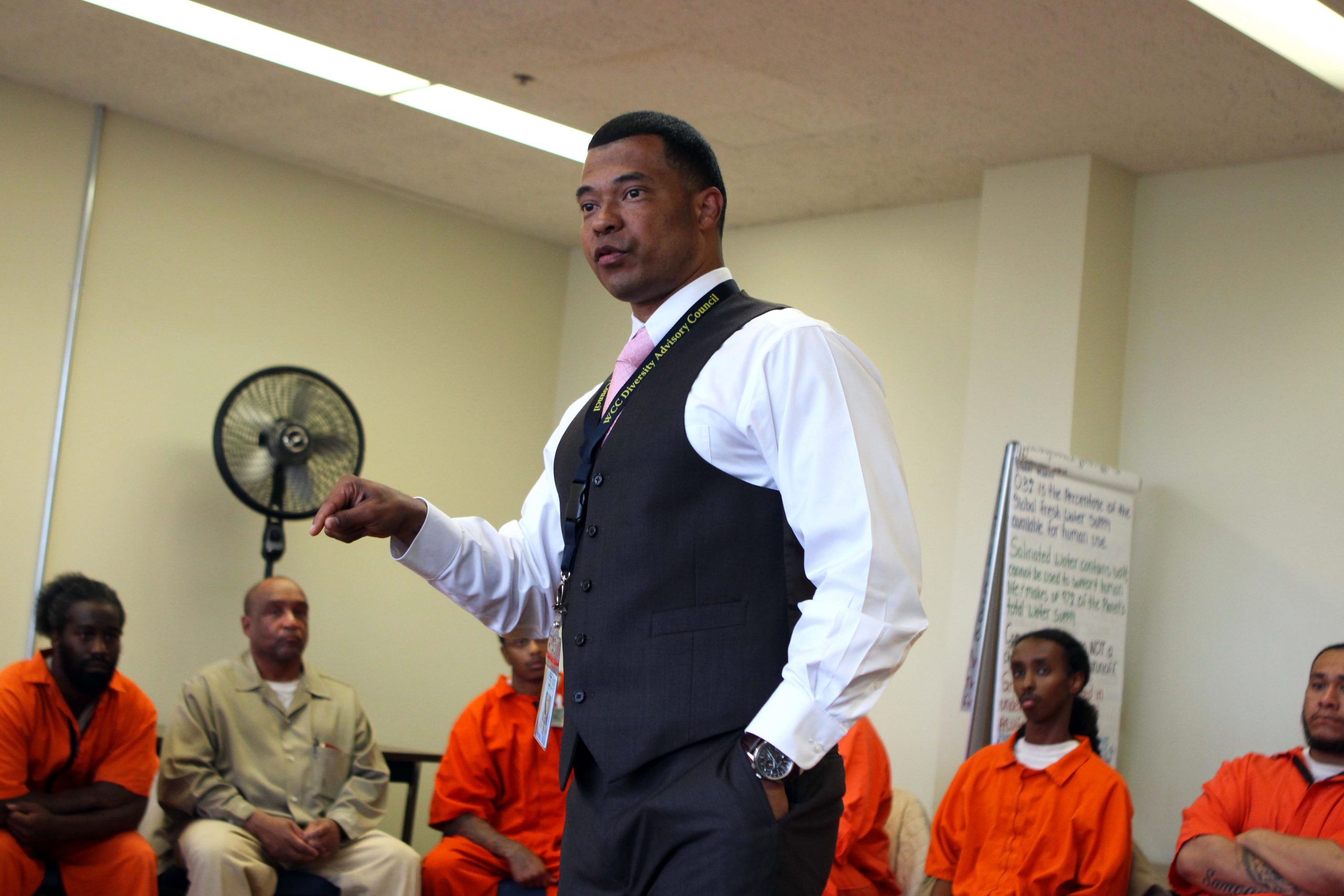
 Dr. Bilal Ansari |
 Dr. Lucinda Mosher |
 Aida Mansoor |
About
Curriculum
Learning Outcomes
Admissions
Pathways to Chaplaincy
The Master of Arts in Chaplaincy (MAC) provides rigorous preparation for students of various religious orientations who wish to serve as chaplains in many settings—from hospitals and prisons to universities, the military, and beyond. The MAC emphasizes the integration of spiritual caregiving theory and practice. Through coursework, field education, Clinical Pastoral Education, and individual advisement, students develop the concrete skills and deep understanding necessary for working in a multifaith environment, as outlined in “Common Qualifications and Competencies for Professional Chaplains” published by the Board of Chaplaincy Certification, Inc. (BCCI) and the “Standards of Practice for Professional Chaplains” of the Association of Professional Chaplains.
All MAC students benefit the interreligious environment of Hartford Seminary. Adherents of all religious traditions are welcome. Students who want an ATS recognized Master of Divinity equivalent degree of 72 hours of graduate work in requisite fields may pair the professional MAC with our academic MAIRS degree. Muslims may opt for an Islamic Studies specialization in the MAIRS and Islamic Chaplaincy in the MAC.
See “Islamic Chaplaincy Pathway at Hartford Seminary.”
The MAC is a 36-credit degree program that can be completed in two years by a full-time student. The program can be pursued online exclusively, but a distance student may need more than two years to complete all requirements.
 Hartford Seminary is a partner of the Chaplaincy Innovation Lab.
Hartford Seminary is a partner of the Chaplaincy Innovation Lab.
Required Core (12 credits)
- CH-530: Chaplaincy Models and Methods
- CH-520: Theology and Scriptures in Spiritual Care Practice
- CH-510: Sociology and Psychology for Chaplaincy
- CH-540: Religious and Cultural Contemporary Ethics
Elective Courses (15 credits)
Courses should be chosen with an eye toward mastery of BCCI competencies not addressed in other courses, and they should be chosen with the guidance of the Program Director. Electives will be selected based upon the student’s interest in pursuing chaplaincy in the fields of Health Care, Prisons, Military, Education, Community, and in Third Spaces.
Students may select any five of the following:
AM-604-3: Theologies of Chaplaincy: Bringing God into the Multifaith Encounter on the Edge of Religion
AM-659: Prison Ministry: Healing From the Inside Out
AM-667-2: Interfaith Leadership in Times of Crisis
AM-731-2: Psychology of Trauma
CH-615: Mental Health: A Spiritual Perspective
CH-725: Advanced Counseling Technique
CH-621: Death and Dying
CH-730: Resilience for Spiritual Leaders
IP-510: Constructive Conflict Intervention
IP-511: Restorative History: Building Peace After Collective Trauma
IP-612: Religious Leadership for Peaceful Change
RS-634-3: Interfaith and Civic Engagement
Specialization in Islamic Chaplaincy
Students in the Islamic Chaplaincy specialization will take CH-618: Muslim Pastoral Theology and, with advisement from the Program Director, select any four of the following:
AM-654: Muslim Public Speaking: History and Practice
AM-659: Prison Ministry: Healing From the Inside Out
AM-692: Basics of Counseling Technique
AM-731-2: Psychology of Trauma
CH-615: Mental Health: A Spiritual Perspective
CH-725: Advanced Counseling Technique
ET-640: Introduction to Islamic Law
ET-643: The Higher Objectives of Islamic Law
HI-625: Modern Muslim Histories
SC-526: Foundational Sources of Islam
Field Education (6 credits)
CH-550 and CH-551; the classes will be graded Pass/Fail.
Field Education for the MA in Chaplaincy is under the supervision of the Director of Field Education. The aim of the two-semester (6 credit) practicum is for students to engage in the practice of chaplaincy and have structured reflection on the integration of the theory and practice of chaplaincy. Students will gather in reflection groups, which will be taught in person. Remote students will have separate reflection groups. Chaplaincy Students must pass a year one oral integrative exam to engage in their first unit of field education, and successfully complete the first unit in order to register for the second unit. Students must meet with the Director of Field Education and one of the Chaplaincy Co-Directors to discuss appropriate field-education placements.
Clinical Pastoral Education (3 credits)
CH-635: Clinical Pastoral Education; the class will be graded Pass/Fail.
Students must complete one-full unit of ACPE accredited Clinical Pastoral Education. Students can substitute one additional unit of CPE as an elective; the additional unit of CPE must be level II or higher. Students must meet with the Director of Field Education to discuss appropriate CPE sites.
- As captured in the BCCI competencies, students will be able to use the intellectual, interpersonal, and professional skills needed to provide chaplaincy care in complex, pluralistic environments. These are described in the Sections I-IV of the Common Qualifications and Competencies for Professional Chaplains, set by the Board of Chaplaincy Certification Inc. These include:
Section I: Integration of Theory and Practice Competencies
Section II: Professional Identity and Conduct Competencies
Section III: Professional Practice Skills Competencies
Section IV: Organizational Leadership Competencies
2. Graduates will have demonstrated knowledge of the Association of Professional Chaplains’ fifteen “Standards of Practice for Professional Chaplains.”
3. Graduates will have command of the Association of Professional Chaplains Code of Ethics, the evidence for this being recorded on Hartford Seminary’s “Code of Ethics Worksheet.”
4. Graduates will have a working knowledge in scriptural languages, and/or ability to recite passages from scripture.
Application deadlines
- July 15 (June 15 for international students) for the Fall Semester; to be considered for financial aid, separate Applications for Financial Assistance must be completed and submitted to the Financial Aid Office.
- December 1 (November 1 for international students) for the Spring Semester.
Application Requirements
- Prior Education: Complete official transcripts from all previous undergraduate and graduate institutions must be submitted to the Admission’s Office. A bachelor’s degree (or its educational equivalent) at a high level of achievement from an accredited institution is a prerequisite for admission. In unusual circumstances, a limited number of highly qualified students without the requisite Bachelor’s Degree will be considered for admission. Admission is granted only on the basis of the terms stated in the Hartford Seminary Catalogue and in the admission letter. Non-U.S. transcripts must be evaluated by a credential evaluation service such as Spantran, WES, or by a member organization of NACES (www.naces.org). SpanTran has created a custom application for Hartford Seminary to make sure you obtain the right kind of evaluation at a discounted rate.
- Statement of Purpose: Each Statement of Purpose is unique and is meant to be an expression of the individuals that write them. We want to know what is important to you, what has shaped you, and, ultimately, who you are. You have the opportunity to tell us about the aspects of your character and experience that help us understand why you are a good match with this program. We also want to know how you would both gain from and contribute to our unique environment. The Statement of Purpose should be four to five pages (typed, double-spaced) and should reflect on:
* your goals in seeking theological education and the experiences or values that have led you to do so;
* the reasons you have chosen Hartford Seminary, in particular;
* your educational/ vocational goals;
* your perceived strengths and potential areas for development;
* the life experiences that have most significantly shaped you in terms of your interest in chaplaincy - References: Three letters of recommendation. At least one letter must be from a faculty member of an institution from which the applicant has earned a degree or another person who can speak to the applicant’s potential for graduate level study; at least one recommendation must be from an individual who can speak to the applicant’s potential for service as a chaplain.
- English Language Proficiency: Students who are not native English speakers or who have not had English as a primary language of instruction in their academic studies, are required to submit scores of the Test of English as a Foreign Language (TOEFL), the International English Language Testing System (IELTS), or the Duolingo English Test (DET) examination and achieve a minimum score of 80 on the internet version of TOEFL or 550 on the paper based total; 6.5 on the IELTS; or 110 on the DET.
- Interview: An interview with a Chaplaincy Program co-Director will be scheduled once the items listed above are submitted.
All completed applications are reviewed by the Admissions Committee.
Application Requirements for MA in Chaplaincy after completing the MA in Interreligious Studies
- Statement of Purpose: Each Statement of Purpose is unique and is meant to be an expression of the individuals that write them. We want to know what is important to you, what has shaped you, and, ultimately, who you are. You have the opportunity to tell us about the aspects of your character and experience that help us understand why you are a good match with this program. We also want to know how you would both gain from and contribute to our unique environment. The Statement of Purpose should be four to five pages (typed, double-spaced) and should reflect on:
* your goals in seeking theological education and the experiences or values that have led you to do so;
* the reasons you have chosen Hartford Seminary, in particular;
* your educational/ vocational goals;
* your perceived strengths and potential areas for development;
* the life experiences that have most significantly shaped you in terms of your interest in chaplaincy - Reference: One letter of recommendation from an individual who can speak to the applicant’s potential for service as a chaplain. May be from Hartford Seminary faculty.
- Interview: An interview with a Chaplaincy Program co-Director will be scheduled once the items listed above are submitted.
No application fee or transcripts will be required for this process.
Ready to start your application? Click one of the links below.
MAIRS Students in the Ministerial Studies or Islamic Studies specializations may continue on to complete the 36-credit hour professional MA in Chaplaincy (MAC), through an internal application process. Students who have completed both the MAIRS and MAC degrees will have completed 72 hours of graduate studies in religion, which is the minimum number of graduate credits required by the Association of Theological Schools (ATS) for the Master of Divinity degree.
Though Hartford Seminary does not confer the Master of Divinity degree, the seminary has designed the combined MAIRS and MAC degrees to honor ATS requirements for Master of Divinity programs, which require that graduates will have:
- an understanding of scripture, the theological traditions and history of the school’s faith community, and the broader heritage of other relevant religious traditions;
- awareness of cultural and social issues, have a global awareness and, skills in navigating the multifaith and multicultural nature of the societies in which students may serve;
- have engaged in personal and spiritual formation, including development in personal faith, professional ethics, emotional maturity, moral integrity, and spirituality;
- have had the opportunity for developing religious and public leadership; and
- have engaged in supervised and evaluated practical experiences in areas related to the student’s vocational calling in order to achieve the learning outcomes of the degree program.
Because of the number of credit hours included in the MAIRS and MAC degrees (72) and because of the subjects covered, ATS considers graduates who have completed both programs to have “MDiv equivalency” for the specific purpose of qualifying students for admission to a Doctor of Ministry program, the terminal ministerial degree. Students should consult with their denomination, religious institution, sponsor, or employer to determine if an “MDiv equivalent degree” meets the requirements for professional ministry.
Note: The United States Armed Forces expects students who want to be military chaplains to complete at least 72-credit hours of graduate theological education. Applicants should inquire with a local Armed Forces recruiter to review the MAIRS and MAC degrees.
Students who complete both the MAIRS and MAC degrees with a total of at least 72-credit hours of graduate theological education qualify for the education requirements for employment as a Staff Chaplain within the Bureau of Prisons.
 Sign-up now ›
Sign-up now ›